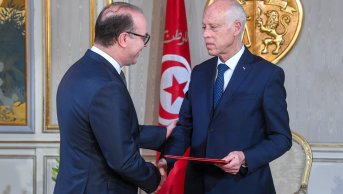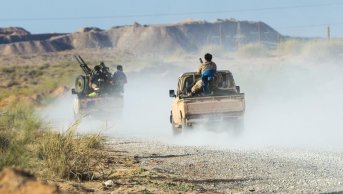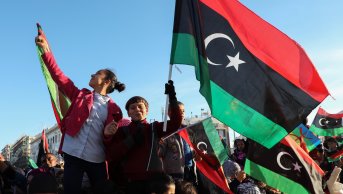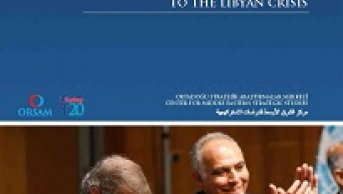Souse Attacks and Security Issues in Tunisia

The meaning and impact of triple terrorist attacks in France, Tunisia and Kuwait, which were held on 26 June, Friday ,following ISIS spokesman Abu Mohammed al-Adnani's call for Muslims to carry out attacks against “infidels and Shiites” during the holy fasting month of Ramadan, deserves a serious assessment at global security context. For Tunisia, these attacks brought in another dimension to the transformation process of the country. Since 2011, security and threat perception as well as security policies in Tunisia have been transformed quickly. After the Bardo Museum Attack, which was carried out on 18 March and left 21 tourists dead, and the Souse Attack, which was resulted with a heavy death list of several tourists; the country is now facing with a serious loss of tourism income as well as considering drastic security measures. By 2014, the number of tourists visiting Tunisia reached the rates of pre-2011. However, it is possible to predict that these two attacks will have multi-dimensional impacts on the near future of the country.
Transformation of Security Problems in Tunisia
Unlike other regional countries, which has overthrown their autocratic leaders, but has been shaken by the instability and authoritarian resilience after 2011; Tunisia still continues the democratization process despite all the serious challenges and obstacles against democratization. In this process, one of the most difficult obstacles and challenges to be overcome by Tunisia is security problem. So far, the interim governments in Tunisia aimed to adopt and implement security policies which would not downgrade the democratization process. In addition to these challenging efforts, elimination of technical capacity depths of internal security services as well as the army has become one of the important purposes. But the developments occurred in Tunisia and region after 2011, has transformed the security threats; hence there is a possibility that Tunisian political elites and decision-makers potentially would put sentiments of democratization on the back burner.
First of all, Tunisia's primary security issues between the years 2011-2013 was to calm the streets and restore public order in the country after 2010-2011 uprisings without causing indignation. During this period, police forces withdrew from the streets; hence the Tunisian army also undertook these tasks. During this period, security issues consisted of public order problems. Parallel to these developments, the agenda in Tunisia was shaped by discussions on democracy. Prominent policy, in this respect, was the integration of the political groups into the system. This conciliatory and integration-oriented approach was clearly observed in the policies towards the new Salafi groups, which had captured a rising trend in the country. Similarly the first coalition government led by the Prime Minsiter of the time, Hamid Jebali, has tried to integrate political groups into the political system. In addition to these efforts, Nahda leader Rachid Ghannouchi has worked to support this policy by giving moderate messages to these groups and youth despite all the harsh criticism directed to him.
However, political assassinations and political crises of 2013 had created a major change in the perception of security threats. The assassinations of Chokri Belaïd on 6 February 2013, and Mohamed Brahmi on 25 July 2013 triggered deep political turmoil as well as led to total transformation of security perception and security policies. The compromising and integrative policies that were adopted also by the second coalition government formed by Prime Minister Ali Larayedh on March 2013 were abandoned and there started a shift to security policies. On 27 August 2013, Prime Minister Ali Larayedh blamed Ansar al-Sharia as the perpetrator of the political assassinations as well as escalating violence in the country, and announced that it is officially designated as a "terrorist organization". During this period, the government gave priority to the fight against terrorism and security policies, and initiated operations on rural areas of the country and border lines with this announcement. Similarly, this period marked the increasing critics and accusations against Salafi groups, which were seen as the source of radicalization, armament and instability in the country by media and political figures. These policies also had been adopted and expanded by Mahdi Juma, Prime Minister of technocrat government and former security adviser of Ali Larayedh. Despite the shift in security policies, the governments in charge between 2011 and 2014 had tried to keep a balance among the security policies and democratization process.
A series of terrorist attacks of 2015 in Tunisia have transformed the existing picture in a more worrisome way. The existence and impact of ISIS in Tunisia began to be discussed in the country after several developments including Bardo Museum attack, kidnapping of Tunisian diplomats in Libya, executions of Tunisian journalists in Libya, log in force nearly 100 cargo vehicle from Ras Jdeir Border Gate. On the one hand, since Bardo Museum Attack, the possible outcome of the new counter-terrorism law has been discussed. On the other hand, it has been mentioned more frequently that Libya is drifting Tunisia towards instability. The claim that Seifeddine Rezgui, the attacker of Souse, had been trained in Libya and brought the kalashnikov that he used in the attack from Libya will increase concerns and discourses on the subject.
Possible Effects of Security Issues Transformation
The observed effects of this change in security issues in Tunisia will directly affect Tunisian domestic politics. First, the new counter-terrorism law was brought to the parliament just after the Bardo Museum attack and was criticized seriously by the civil society organizations, the opposition and coalition partners. There were concerns that the new law would harm the democratization process, enable the right abuses and provide a suitable environment for the remnants of the former regime. With the Souse Attack, it became even more difficult to object the law and it has been submitted to parliament for voting on 29 June.
The structural reforms in the important and powerful institutions of the country have not been realized in the post-2011 era. Therefore, there is a danger of instrumentalisation of internal security concerns for repression through radicalism and counter-terrorism rhetoric. In addition, probable policies, which will be adopted in the context of the fight against terrorism, have the potential to undermine the democratization process.
Finally, it is possible to argue that the aforementioned developments will also affect Libya and shape the perception of Libya. Since 2014, United Nations Support Mission in Libya (UNSMIL) has been trying to convince the rival parties for a political resolution. Currently, the rival parties began to direct talks for the first time in the meeting held in Berlin, Germany. However, Egypt has continued to push for a military intervention in Libya through the discourse on ISIS and global terrorism. So far, Tunisia remained distant to these policies and rhetoric in order to avoid a new refugee flowfrom Libya. However, after these developments, Tunisia, at least, will solidify its rhetoric and policy towards Libya. On the other hand, we will be able see the possible impacts by observing closely the ongoing talks between the Libyan parties in Morocco.











